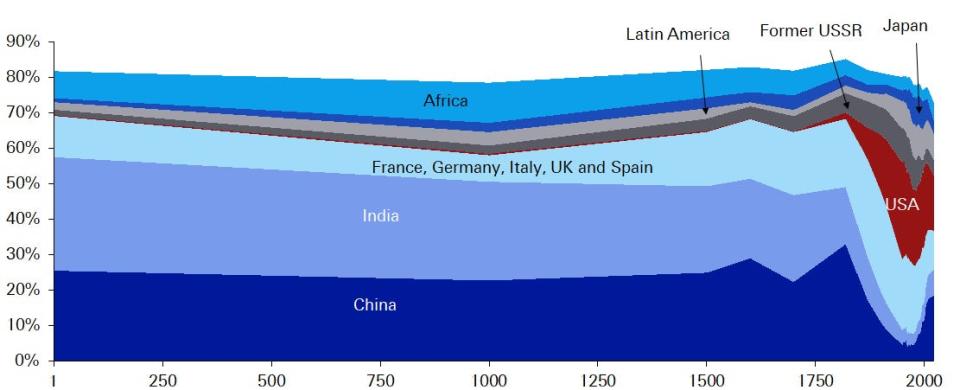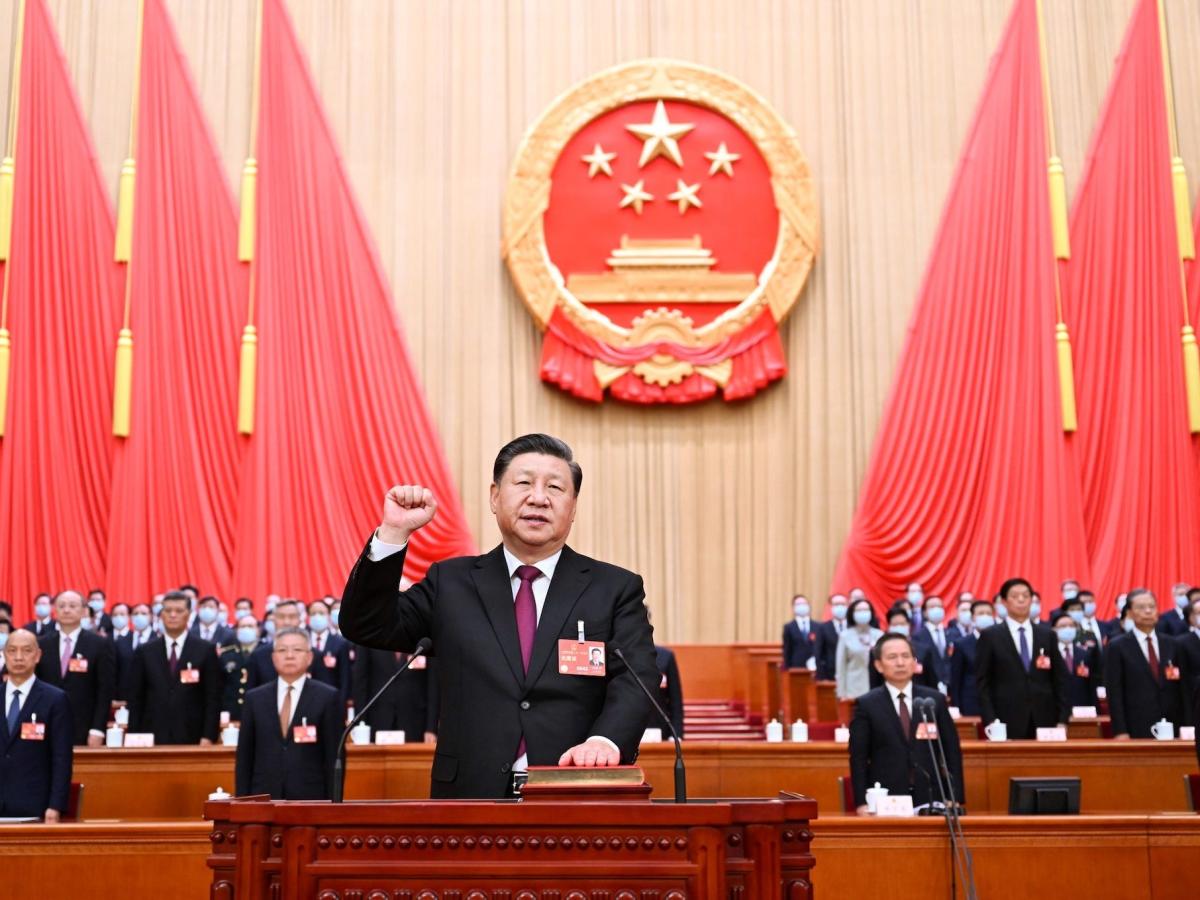-
China’s rapid economic growth in recent decades has restored its global GDP share to historical norms, per a Deutsche Bank report.
-
The report highlights how shifts in global economic power, such as China’s rise, often lead to geopolitical tensions.
-
In an interconnected world, the economic costs of global conflicts would be higher than in the past.
China’s growing assertiveness has rattled neighbors and contributed to geopolitical tensions, but history shows this isn’t new, a Deutsche Bank report released this week shows.
“World economic power shifts over time. The relative growth and decline of countries/empires often lead to global tensions,” wrote Jim Reid, a research strategist at Deutsche Bank.
Reid added that while China has been growing rapidly in recent decades, “that growth is just restoring it closer to its place for much of economic history. More tellingly, Reid wrote, it’s a position that China “feels is the historical norm.”
The chart below from Deutsche Bank shows how much various global economies have contributed to the world’s GDP throughout history.
While India and China were major players early on, the US was late to the game because it’s a relatively new country. America rapidly became a major power around the late 1800s, while India and China’s share of global GDP fell way down.

China’s GDP rapidly caught up with the US around the Global Financial Crisis, or GFC. China was on track to overtake America by late 2020 but was derailed by a flailing post-pandemic recovery — a contrast to robust growth in the US.
“The rapid post-GFC catch-up had been at the epicenter of the deteriorating US-China relationship and their relative performance going forward will likely continue to define it,” Reid wrote.
The strategist doesn’t have a conclusion about what’s to come for world history, but Reid wrote in the report that tensions between a rising power and a ruling one have mostly ended in wars.
A global conflict now would hit the world economy hard.
“The world has never been as connected, meaning the economic costs of global conflict would be higher than in the past,” Reid wrote in a separate note on the report.
“Perhaps the overall budget constraints of today’s world will encourage stretched governments to think twice about entering into expensive conflicts,” he added.
Business Insider was not able to reach Reid for additional comment.
Read the original article on Business Insider

David Turner is a globe-trotting journalist who brings a global perspective to our readers. With a commitment to shedding light on international events, he explores complex geopolitical issues, offering a nuanced view of the world’s most pressing challenges.







